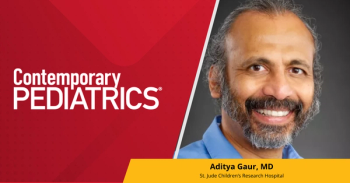
- May 2022
- Volume 39
- Issue 4
For community-acquired pneumonia, 5 days of treatment proves superior to 10
An investigation offers more evidence that shorter antibiotic courses can be just as effective as longer ones.
Children who respond to initial treatment for outpatient community-acquired pneumonia (CAP) are better off following a 5-day strategy than a longer antibiotic course, according to investigators with a randomized placebo-controlled clinical trial. Compared with longer treatment, the shortened approach resulted not only in similar clinical responses and antibiotic-associated adverse effects (AEs) but also in reduced antibiotic exposure and resistance.
The 380 participants, who ranged in age from 6 months to 5 years and came from health care settings in 8 US cities, had nonsevere CAP, and showed early clinical improvement. On day 6 of their originally prescribed therapy, the children were divided into 2 groups and received either 5 more days of their initial antibiotic (standard course group) or 5 days of placebo (short course group). Study drugs were 80 to 100 mg/kg/ day of amoxicillin or amoxicillin/ clavulanate, divided twice daily, or 12 to 16 mg/kg/day of cefdinir, also divided.
The groups did not differ with regard to inadequate clinical response or persistent symptoms (experienced by < 10% of all participants) or antibiotic-associated AEs (generally mild—irritability and diarrhea). The short-course strategy was associated with significantly less likelihood of developing antibiotic-resistance, which investigators detected using DNA from throat swabs at the end of the study.
Thoughts from Dr. Farber
For years, 10 days of antibiotic treatment was the standard of care for most infections, but we have moved to shorter courses for many entities, such as otitis media in older children, and urinary tract infections. It looks like we can add pneumonia to the list in those rare instances in which an antibiotic is needed in the first place.
Reference
Williams DJ, Creech CB, Walter EB, et al. Short- vs standard-course outpatient antibiotic therapy for community-acquired pneumonia in children: the SCOUT-CAP randomized clinical trial. JAMA Pediatr. 2022;176(3):253-261. doi:10.1001/ jamapediatrics.2021.5547
Articles in this issue
over 3 years ago
Assessment and treatment of eating disorders in adolescentsover 3 years ago
Does diet really play a role in acne?over 3 years ago
The business of being a pediatricianover 3 years ago
Telehealth for pediatric well visits: Sometimes the best optionover 3 years ago
Diagnostic testing for SVT usually can be skippedNewsletter
Access practical, evidence-based guidance to support better care for our youngest patients. Join our email list for the latest clinical updates.






